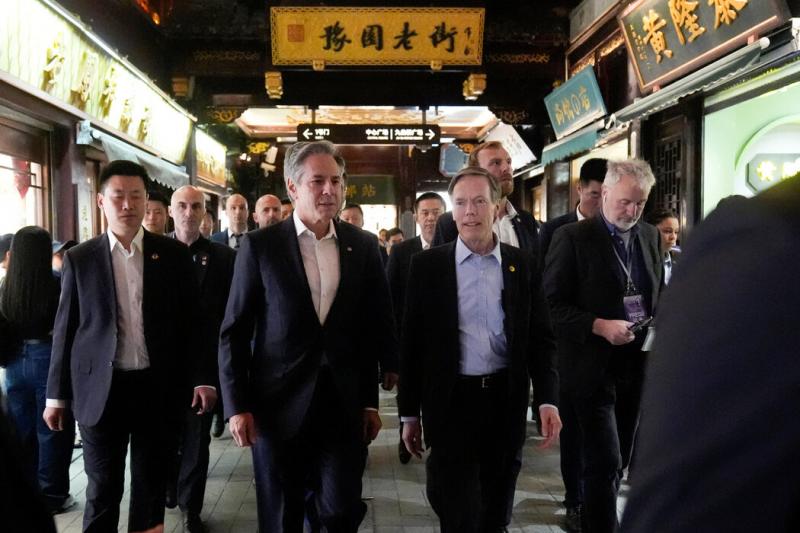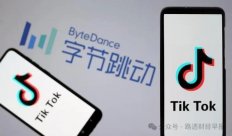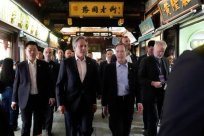
The Secretary of State Brills cheer on the sidelines at a basketball game in Shanghai on Wednesday night, and communicated with students at the Shanghai Campus of New York University on Thursday and met with American business owners.All this is to highlight the economic, education and cultural connection between the two countries. The United States has always emphasized that this connection is beneficial to both parties.
But behind these politeness during his visit to China this week, the United States is also taking measures to cut off the economic connection with China in the field of the Bayeng government that threatens the interests of the United States.These will also be the focus of Chinese officials.
While trying to stabilize the relationship with China, the government is promoting several economic measures to limit China to enter the US economy and curb China to obtain American technology.It is prepared to increase tariffs on Chinese steel, solar panels and other key products to protect the impact of cheap imported products in the US factories.It is also considering further restricting China's ways to obtain advanced semiconductors to prevent China's development from complex artificial intelligence that can be used for battlefields.
This week, Congress also passed a legislative to ask Tiktok's Chinese owner byte beating companies to sell the application within 9 to 12 months, otherwise it will be banned in the United States.The President signed the bill on Wednesday, although the bill may be challenged in court.
Brinken is expected to go to Beijing on Friday to hold a high -level meeting. The tone of this visit is much easier compared with his trip to China last year.That time was the first visit to the United States in the Chinese spy balloon through the United States, and the US public caused the first visit after the United States.

Brinton met with the Shanghai Municipal Party Secretary on Thursday morning that direct contact between the United States and China is valuable and necessary.
"We have the obligation to our people, have obligations to the world, and responsibly handle the relationship between our two countries."
Later in the morning of that day, he told students at the Shanghai Campus of New York University that the educational exchanges that students participated in were complicated and confrontable relationships provided "cockpit stones".
Since President Biden met with senior China in California last November, US -China relations seem to have become more stable, and there is no ups and downs of trade disputes in the former President Trump.
But the Biden government is still seeking a more severe economic relationship with China.
Including the control of semiconductor technology, both sides use them as a more prominent problem than ever.The Biden government has been considering further export control, especially for factories that have been helping Chinese technology giants Huawei to produce advanced semiconductors.
Emily Bensen, a trading expert at Washington Think Tank Strategy and International Research Center, said: "By clearing the technical capabilities of trying to weaken China, especially in advanced artificial intelligence, the United States has pushed export control to the US -China agendaThe forefront.
In the earlier time of Xi Make -worship this month, both leaders regarded technical control as a vital issue.According to the White House, Biden emphasized that the United States will continue to take necessary actions to prevent advanced technology in the United States from being used to destroy its national security without excessive restrictions on trade and investment.
The new sanctions on China are not "risks", but making risks.According to Xinhua News Agency, he said that if the United States wants to "suppress China's high -tech development and deprive China's legitimate development rights, we will not sit down."
U.S. officials said that in view of the national economic model, these restrictions are necessary.However, these measures have anger China and push the tensions around economic measures to the highest point for many years.
Brinken and other US officials emphasized that the United States' export control, sanctions, and other restrictions on the implementation of Chinese technology companies only apply to a small part of the more extensive US -China relations.They said that trade was encouraged in other fields.
In a report this week, the US -China Trade National Committee composed of 270 American companies composed of 270 US companies in China estimates that the US exports to China have supported more than 900,000 U.S. jobs in 2022, althoughDue to China's economic downturn, US tariffs and other factors, goods exports declined in 2023.
Craig Allen, chairman of the organization, said: "We need to remind American members and those who are influential. Each state and parliamentary districts in the United States maintain their own economic and trade relationship with China.Carefully consider changes in the US -China trade policy. "




